Filter by

Consequences of the Global Financial Crisis
The Global Financial Crisis (GFC) is the most serious economic crisis since the Great Depression. Many books have explored its causes, but this book systematically explores its consequences. The focus is primarily on the policy and political consequences of the GFC. This book asks how governments responded to the challenge and what the political consequences of the combination of the GFC itself…
- Edition
- -
- ISBN/ISSN
- 9780199641987
- Collation
- -
- Series Title
- -
- Call Number
- 650
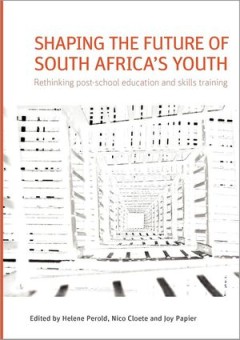
Shaping the Future of South Africa’s Youth : Shaping the Future of South Af…
South Africa has made huge gains in ensuring universal enrolment for children at school, and in restructuring and recapitalising the FET college sector. However, some three million young people are not in education, employment or training and the country faces serious challenges in providing its youth with the pathways and support they need to transition successfully into a differentiated syste…
- Edition
- -
- ISBN/ISSN
- 9781920489465
- Collation
- -
- Series Title
- -
- Call Number
- 650
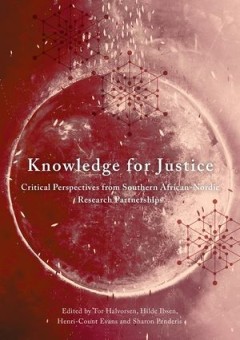
Knowledge for Justice : Critical Perspectives from Southern African-Nordic Re…
With the adoption of the United Nations Sustainable Development Goals (SDGs) and the Paris Agreement, the purpose of development is being redefined in both social and environmental terms. Despite pushback from conservative forces, change is accelerating in many sectors. To drive this transformation in ways that bring about social, environmental and economic justice at a local, national, regiona…
- Edition
- -
- ISBN/ISSN
- 9781928331636
- Collation
- -
- Series Title
- -
- Call Number
- 650
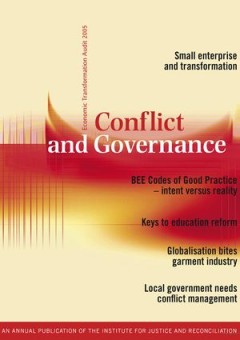
Conflict and Governance : 2005 Transformation Audit
Economic Transformation Audit 2005 – Conflict and Governance interrogates the manner in which South Africa’s economy is transforming the country’s political and social landscape. It scrutinises the data for directions of development and pointers for future policy. This edition mobilises acknowledged experts in these areas to apply high-calibre political and statistical analysis to the exi…
- Edition
- -
- ISBN/ISSN
- 9780958479493
- Collation
- -
- Series Title
- -
- Call Number
- 650

Law-Carbon innovation and development
The Global Network for the Economics of Learning, Innovation, and Competence Building Systems (Globelics) is an open and diverse community of scholars working on innovation and competence building in the context of economic development. The major purpose of the network is to contribute to building capacity and create a forum for exchange worldwide in the innovation and development research fiel…
- Edition
- -
- ISBN/ISSN
- 9788771121322
- Collation
- -
- Series Title
- -
- Call Number
- 650
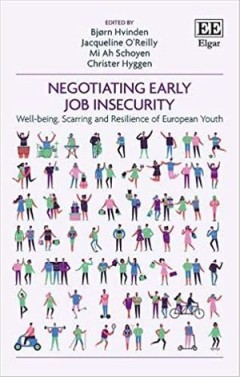
Negotiating Early Job Insecurity : Well-being, Scarring and Resilience of Eur…
Offering new knowledge and insights into European job markets, this book explores how young men and women experience job insecurity. By combining analysis of original data collected through a variety of innovative methods, it compares the trajectories of early job insecurity in nine European countries. Focusing on the ways in which young adults deal with this by actively increasing their chance…
- Edition
- -
- ISBN/ISSN
- 9781788118798
- Collation
- -
- Series Title
- -
- Call Number
- 650
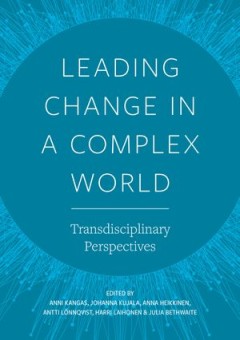
Leading Change in a Complex World
Leading Change in a Complex World : Transdisciplinary Perspectives is a transdisciplinary book offering tools for leaders, analysts and students of leadership to navigate in complex and interconnected settings. It proposes an analytical framework based on complexity, relational leadership, and dynamic change. Individual chapters examine these ideas in relation to topical societal, organisationa…
- Edition
- -
- ISBN/ISSN
- 9789520308452
- Collation
- -
- Series Title
- -
- Call Number
- 650
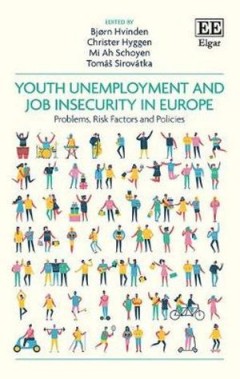
Youth Unemployment and Job Insecurity in Europe : Problems, Risk Factors and …
Providing original insights into the factors causing early job insecurity in European countries, this book examines its short- and long-term consequences. It assesses public policies seeking to diminish the risks to young people facing prolonged job insecurity and reduce the severity of these impacts. Based on the findings of a major study across nine European countries, this book examines the …
- Edition
- -
- ISBN/ISSN
- 9781788118897
- Collation
- -
- Series Title
- -
- Call Number
- 650

A Demographic Perspective on Gender, Family and Health in Europe
family; relationships; health, parenthood
- Edition
- -
- ISBN/ISSN
- 9783319723556
- Collation
- -
- Series Title
- -
- Call Number
- 330 DOB d
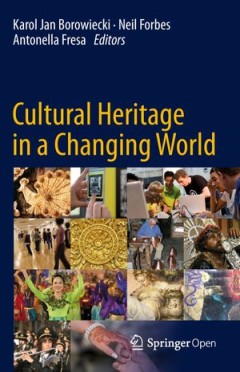
Cultural Heritage in a Changing World
Cultural Heritage; Cultural Economics; Cultural Studies; Archaeology; Information Storage and Retrieval; Information Systems Applications (incl. Internet)
- Edition
- -
- ISBN/ISSN
- 9783319295428
- Collation
- -
- Series Title
- -
- Call Number
- 301 BOR c
 Computer Science, Information & General Works
Computer Science, Information & General Works  Philosophy & Psychology
Philosophy & Psychology  Religion
Religion  Social Sciences
Social Sciences  Language
Language  Pure Science
Pure Science  Applied Sciences
Applied Sciences  Art & Recreation
Art & Recreation  Literature
Literature  History & Geography
History & Geography